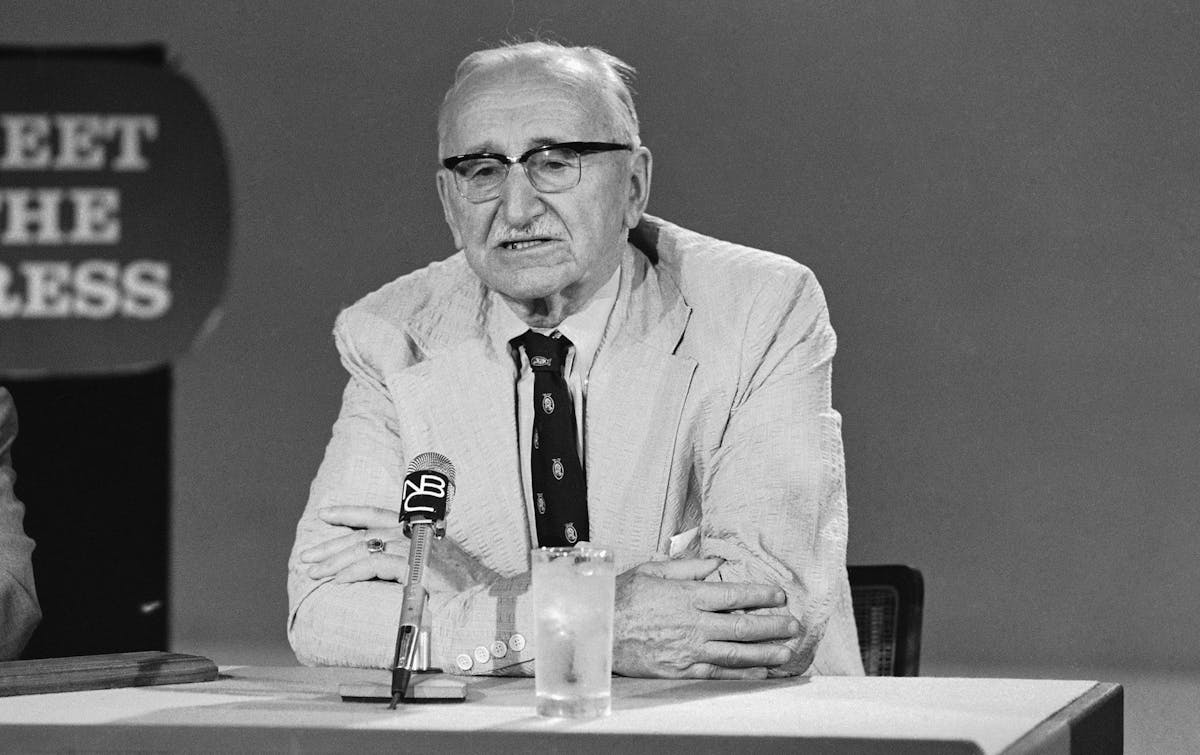Rep. Phyllis Kahn's impatience showed when my eyes kept wandering to the women's movement mementos that decorate her office walls. Kindly but clearly, she let me know on a recent visit that she prefers to talk about here-and-now legislative matters and the work that she aims to do in 2015 and beyond.
Kahn, 76, is a bona fide Minnesota feminist pioneer. The Minneapolis DFLer is the last serving member of the Legislature's breakthrough Class of 1972. In that year of feminist foment, six women were elected to the state House, a body in which only one or two at a time had served for decades before.
But she knows that in ever-changing Minnesota, one generation's pioneers can quickly become the next generation's establishment. And being seen as anybody's "establishment" does not sit well with marathon runner/urban poultry farmer/blue-ribbon pie baker/Yale Ph.D. biophysicist Phyllis Kahn.
To her, that accusation may be the most irritating thing about the intraparty re-election challenge she's confronting from Mohamud Noor, the 36-year-old executive director of the Confederation of Somali Community in Minnesota and a new member of the Minneapolis school board. He's challenging her for DFL endorsement and isn't yet saying whether he'll take his fight to the Aug. 12 primary.
She doesn't begrudge his ambition to be the first Somali-American elected to the Legislature — though she hinted that Noor's ambition might run a little hot for Minnesota tastes. He had barely warmed the school board seat to which he was appointed after the death of Hussein Samatar when he launched his legislative bid. He was sworn in as a school board member on Dec. 10; he announced his legislative candidacy before a packed house at the Brian Coyle Community Center, headquarters of the confederation he directs, on Dec. 29.
But Kahn vigorously disputes Noor's characterization of her as politically calcified and out of touch with the western side of District 60B, home to the largest concentration of Somali immigrants in the country.
She notes that she's sponsoring a bill to finance the renovation of the overcrowded Coyle Center and another to provide state help to the African Development Center, which the late Samatar founded. She campaigned hard in the Cedar-Riverside neighborhood in 2012, hiring Somali high school students as translators to help inform new citizens about voting.
She says she was the first DFL elected official to endorse the candidacy of newly elected Abdi Warsame to the Minneapolis City Council. Warsame is reciprocating by supporting Kahn for re-election, his office confirmed. So, she said, is one of Minnesota's newest movie stars, Barkhad Abdirahman, of "Captain Phillips."
None of that satisfies Noor. A former state Department of Human Services systems administrator making his second bid for the Legislature, Noor more than matches Kahn in displaying impatience to a visiting journalist. His critique of her performance is about her lawmaking priorities.
"This district keeps changing demographically," he said. "You've got students, you've got the immigrants. Their needs are issues of housing, employment, early childhood education. It's: How can we help improve education for newly arrived immigrants? How can we give them the opportunity they deserve?
"That is an agenda that's been missing. I think we can't wait for too long."
I couldn't help hearing echoes of the case female candidates made when they began filing for office in big numbers in the 1970s. And wonder, not as much for Kahn's sake as for that of a couple of generations of Minnesotans, hers and mine: How can one stay relevant and "pioneering" in a rapidly changing state?
Kahn's case to DFL precinct caucusgoers on Feb. 4 will be that she has done just that, and has the vitality to keep doing it in 2015-16. But, ironically, her very vitality interferes with her pitch that she represents well the interests of her district's immigrants. She's the third-most-prolific sponsor of House bills so far this session, keeping up her perennial pace and exhibiting an omnivorous appetite for public policy.
Per usual, some of her 2013 bills might be called offbeat, such as the ones to legalize sports gambling and a resolution objecting to human organ harvesting in the People's Republic of China. But there's also a meaty strain to her bills, reflecting her years of chairing committees overseeing Legacy Amendment and state agency funding and her roots in biophysics. Her scientific knowledge — she's one of the few legislators in the country to be elected a fellow in the American Association for the Advancement of Science — makes her an important contributor to policy debates about nuclear energy, climate change, invasive species, cancer prevention and more.
She's ready to stand — often, on the House floor, microphone in hand — to discuss them all.
To Noor's credit, he doesn't even hint that Kahn is slowing down. It would be a tough argument to make.
Still, the fact that he is 40 years her junior is bound to be a factor in their race, whether he makes it explicit or not. And the fact that Minnesotans are all confronting what it means to be a demographically shifting society, and how to make the most of all of our human capital, will make the Kahn-Noor contest one to watch.
Lori Sturdevant is a Star Tribune editorial writer. She is at lsturdevant@startribune.com.

As a topic among policymakers, housing is hotter than it once was
Worries about the U faded in search for new president

Up next for the DFL: amending the state Constitution
To combat contempt of courts, there's no substitute for character


